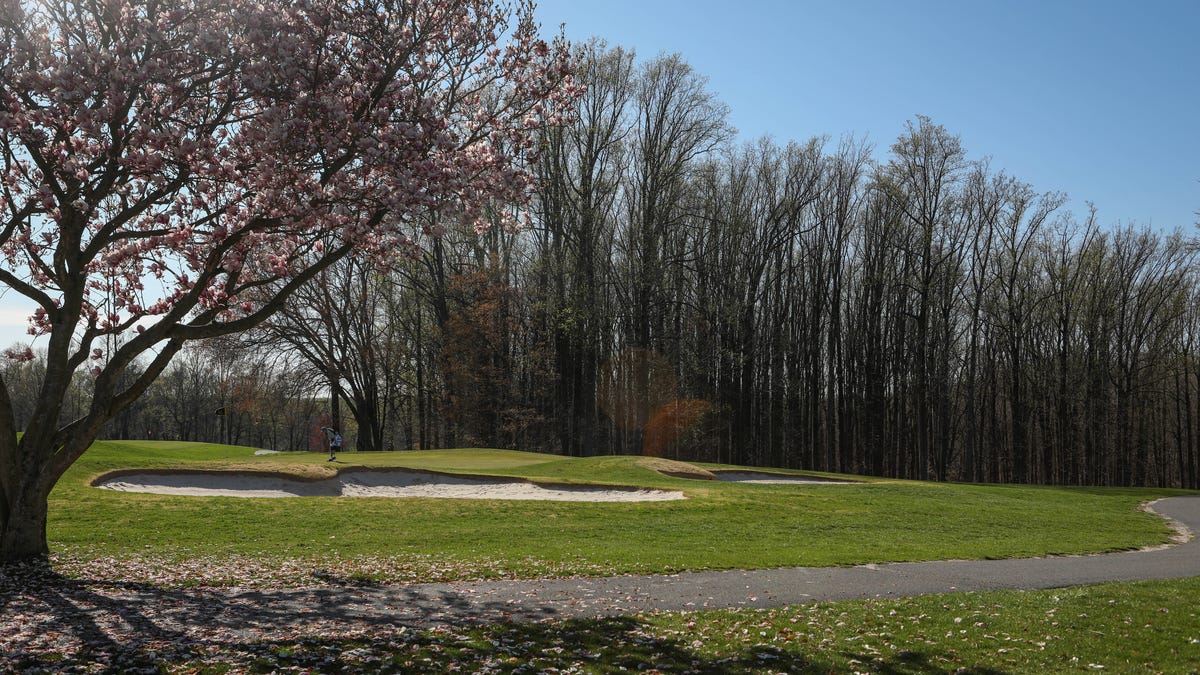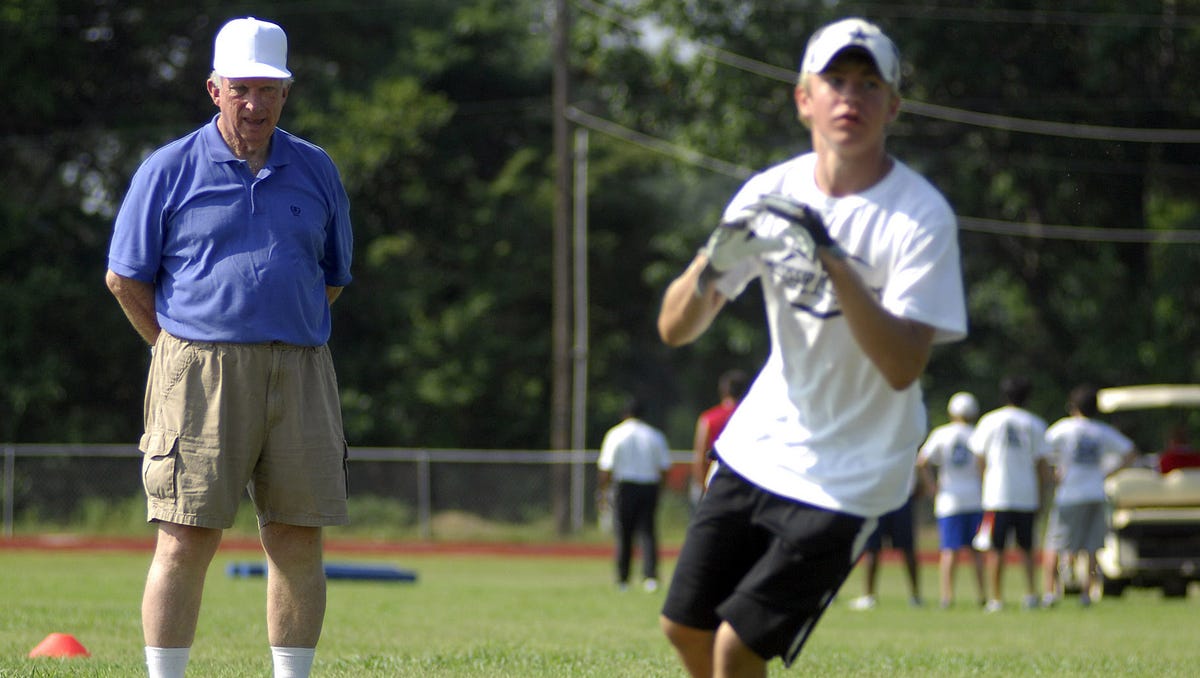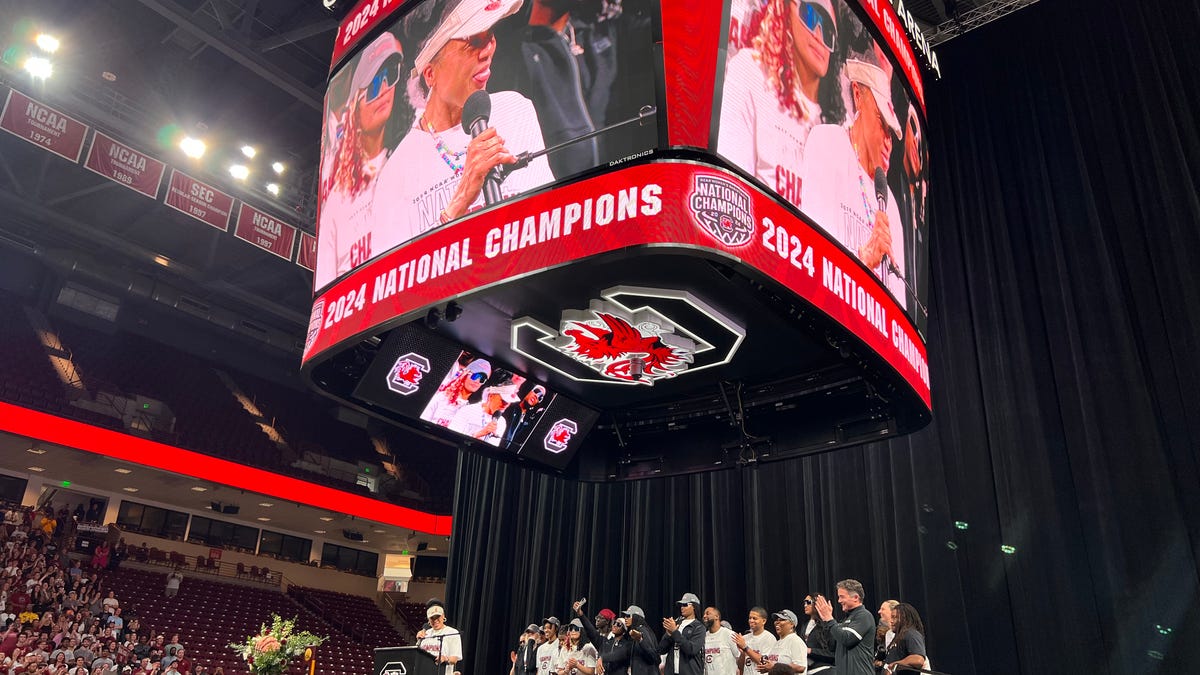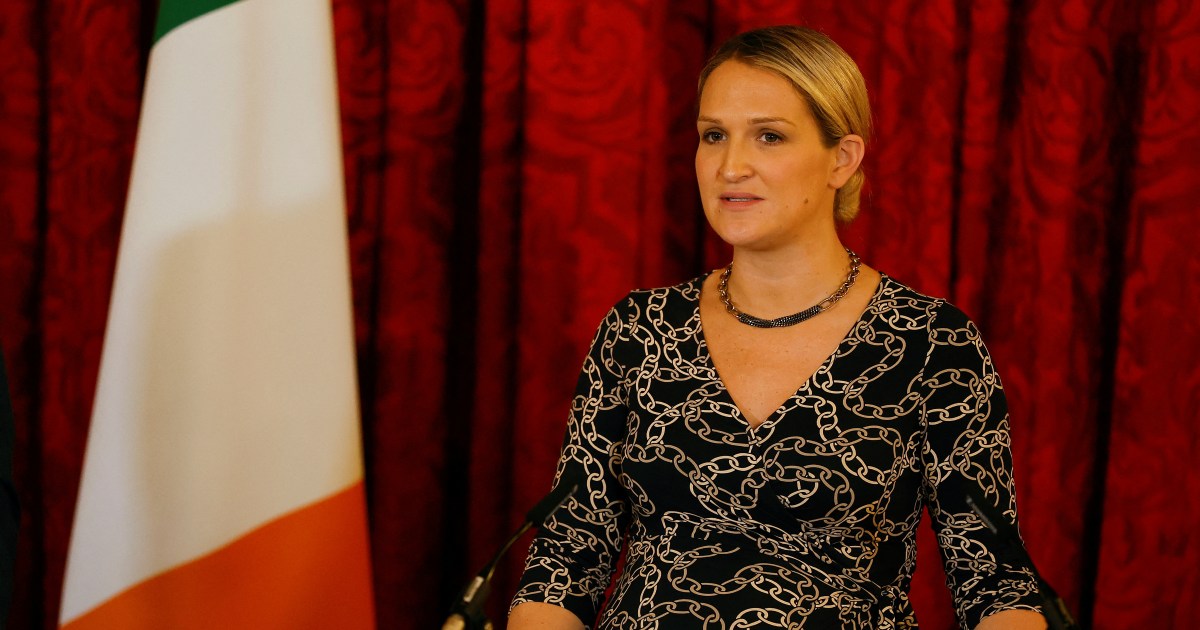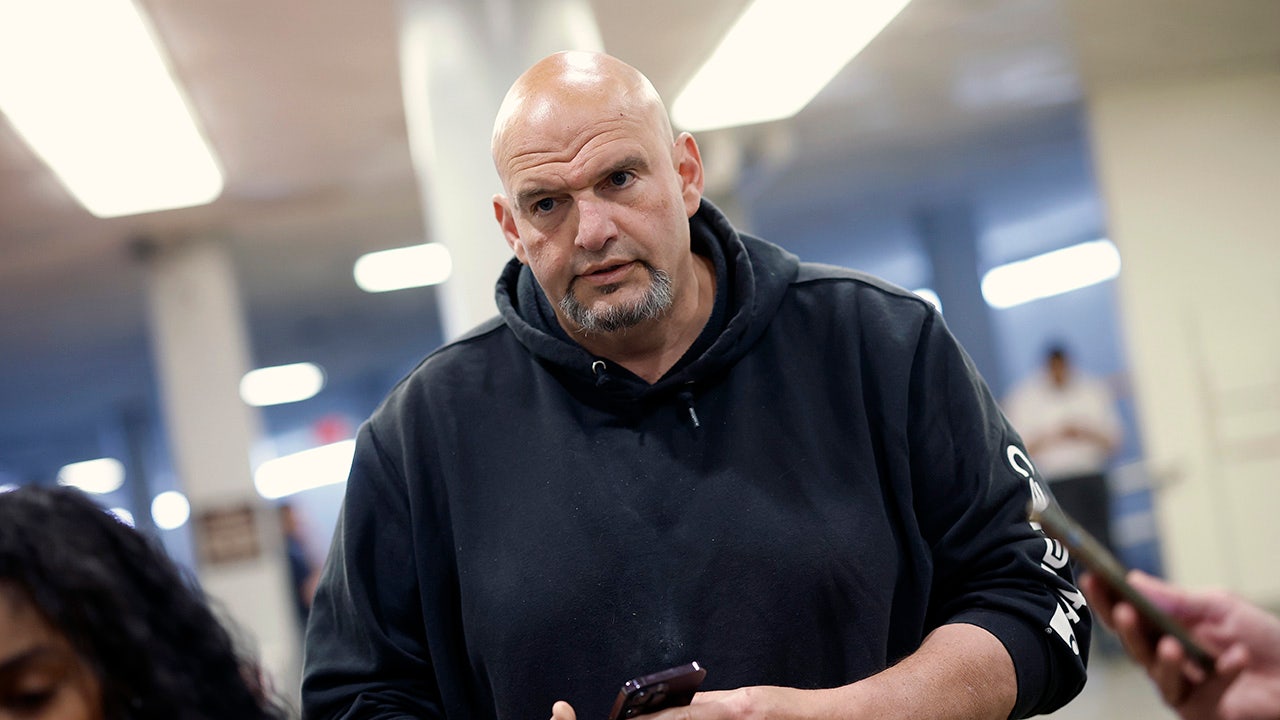Rhode Island
Childcare workers another critical part of RI’s infrastructure | Opinion

Rep. Susan R. Donovan (D-District 69, Bristol, Portsmouth) is chairwoman of the House Health and Human Services Committee. Sen. Sandra Cano (D-District 8, Pawtucket) is chairwoman of the Senate Education Committee.
In a recent commentary, early education advocates Lisa Hildebrand and Khadija Lewis Khan drew a very appropriate comparison between Rhode Island’s child care resources and the Washington Bridge, noting that both are critical infrastructure whose challenges create serious obstacles to working Rhode Islanders.
More: Education advocacy group unveils legislative agenda for 2024. Here’s what’s in it
We couldn’t agree more, and are just as committed to strengthening early education programs in our state as we are to ensuring a safe and swift solution to the bridge fiasco. But unlike the problems that led to the failure of the bridge, the causes and solutions to our child care problems are quite clear.
Simply put, it’s funding. It’s virtually impossible to provide the high-quality child care that working families need at a price they can afford. The result is a tug-of-war that no one is winning – families cannot afford child care and early educators cannot afford to live on their income, which is generally lower than entry-level fast food wages.
That is why we are making the Rhode Island Early Educator Compensation Stabilization Act (H7251, S2038) one of our highest priorities this legislative session. Our bill would sustain and strengthen existing workforce development and compensation programs for educators working in licensed child care and early learning programs statewide, funding the continuation of workforce development and retention bonuses for our state’s dedicated, valuable, yet incredibly underpaid early educators.
More: Everyone wants something from Rhode Island’s part-time lawmakers. Here’s the list.
The bill would continue the Child Care WAGE$ salary supplement program, as well as a pandemic-era quarterly retention bonus of $750 for the lowest wage early educators who work directly with children and have been consistently employed in the same program.
These programs have helped retain early education staff since the pandemic. Our state will face a child care crisis if funding ends this year.
We have been working to bolster support from our legislative colleagues and our chambers’ leadership for this important measure to help ensure that the devoted staff members of child care and early learning programs can afford to keep the jobs they love. If they can’t afford to work, neither can the families who depend on them.

Rhode Island
Rhode Island grad transfer Tenin Magassa commits to Illinois

Weeks after ending the season with the program’s first-ever postseason title in the inaugural WBIT, Shauna Green and her dug through the transfer portal in an effort to boost a 2024-25 push for the Big Dance.
Just two days after announcing the pickup of Mississippi State transfer guard Jasmine Brown-Hagger, the program announced the addition of graduate transfer Tenin Magassa from Rhode Island on Sunday.
The addition of Illinois native Brown-Hagger is a reunion of sorts, as Green’s staff had recruited the rising sophomore out of high school; Magassa’s arrival can also be described as a reunion.
Before transferring to Rhode Island, the 6-foot-6 center from Morsang-Sur-Orge, France played for Green at Dayton.
“Having coached her for two years, I know she can help us right away,” Green said. “T is a big that can run in our pace, protect the rim defensively, and has the ability to score with her back to the basket. She knows our system and our standards. T is a winner, having won championships with us at Dayton and one at URI.”
In 2023-24, T averaged 7 points, 4.6 rebounds and 2 blocks per game in 17.8 minutes for the Rams. According to HoopHeroines, she had a 26.5 PER, 102.6 Player Offensive Rating and +22.9 Net Rating last season, albeit in limited minutes.
Magassa, as of Sunday, is currently the tallest player on a roster that loses Camille Hobby, a 6-foot-3 grad transfer center who started all but 12 games last season.
Up up and away. . .
The two transfer pickups show a clear intent to grow taller and longer, something that Green has been building towards in her time at Illinois.
Green will also welcome five-star, McDonald’s All-American Berry Wallace next season alongside the in-state Hayven Smith. Wallace and Smith stand 6-foot-1 and 6-foot-6 respectively. Brown-Hagger stands at 5-foot-9, three inches taller than the Orange and Blue’s current guard duo of Makira Cook and Genesis Bryant, who are both listed at 5-foot-6.
The team loses six players from last season — two by graduation and four by transfer — and might not be done bulking up quite yet. Assistant coach Calamity McEntire took to X just hours after Magassa’s commitment with a message to Illini fans. . .
Rhode Island
Now former Rhode Island teacher found guilty of molesting three children he knew

Attorney General Peter Neronha announced that a Lincoln man has been found guilty in Providence County Superior Court of multiple counts of second-degree child molestation against three victims between 2016 and 2017.
On April 24, 2024, following a seven-day trial before Superior Court Justice Maureen Keough, a jury found 34-year-old Nicholas Oliveira guilty of three counts of second-degree child molestation. Additionally, Oliveira has been charged with first-degree child molestation in Connecticut. That case remains pending.
During the trial, the State proved that Oliveira sexually assaulted three girls under the age of 14, all of whom were known to him, on multiple occasions between July 2016 and December 2017.
Oliveira is a now former teacher in the Cumberland School District.
Special Assistant Attorney General Jonathan Burke of the Office of the Attorney General and Detective Richard Bousquet of the Lincoln Police Department led the investigation and prosecution of these cases.
Rhode Island
Changes in wastewater billing are overdue in RI | Opinion
Richard Burroughs teaches in the Department of Marine Affairs at the University of Rhode Island. He has served as a member of the board of Save The Bay and as a commissioner for the Narragansett Bay Commission.
The Providence Journal very correctly points out how the health of Narragansett Bay relates to the well-being of the residents around it through its March articles on the quahog. And Rhode Islanders can best benefit from changing the Bay, if they can pay for it. By federal Environmental Protection Agency standards, not all can.
Cleanup requires systems of pipes and tunnels to collect wastewaters and then elaborate machinery to clean and disinfect it prior to discharge to the Bay. A mandated 50% of nitrogen is removed along the way. As the Providence Journal articles explain, if too much nitrogen has been taken out, then there is an associated question of food for the quahogs. Using food-supply logic, less fertilizer and fewer phytoplankton results in a diminishing supply of quahogs — and the livelihoods related to them.
More: What’s a quahog? A quick guide to Rhode Island’s iconic clam.
Cleanup costs also include construction of tunnels, electricity for pumps, maintenance of tanks, additives to assist the process, as well as other expenses.
More importantly, the high costs of wastewater treatment are borne by all households and businesses. Since the fees for the Narragansett Bay Commission customers are for connection and water used, residences with varied incomes will see very different annual bills when measured as a percentage of household income. Providence, Pawtucket and Central Falls have areas where the bill reaches as high as 7% of median household income. Other, wealthier, areas in Providence are at 1% or less of household income.
The Environmental Protection Agency has seen this as a weakness for many, many years and has developed and revised national guidance, most recently last month. The EPA indicates bills that are 2% or more of household income are high.
Unfair billing is a serious weakness, but it is not without solutions. The EPA suggests, and many communities in other areas have adopted, customer assistance programs. Among them are lifeline rates, where basic water needs are covered and any excess usage is billed at the standard rate. When this approach was applied in Philadelphia, collections increased as more households could readily pay. These kinds of billing changes are overdue in Rhode Island.
If implemented, costs for continued improvements to Narragansett Bay would not disproportionately fall on those with less ability to pay.
The message about billing is clear. For some, the bills are too high according to EPA guidance. Important future steps to improve the Bay need to be considered not only in terms of water quality but also in terms of billing impacts on people. Now is the time to move forward and set wastewater bills on an equitable level.
-

 Kentucky1 week ago
Kentucky1 week agoKentucky first lady visits Fort Knox schools in honor of Month of the Military Child
-

 World1 week ago
World1 week agoIranian media says three drones downed after explosions heard in Isfahan
-

 World1 week ago
World1 week agoShipping firms plead for UN help amid escalating Middle East conflict
-

 Politics1 week ago
Politics1 week agoIsrael hits Iran with 'limited' strikes despite White House opposition
-

 Politics1 week ago
Politics1 week agoICE chief says this foreign adversary isn’t taking back its illegal immigrants
-

 News1 week ago
News1 week agoThe San Francisco Zoo will receive a pair of pandas from China
-

 Politics1 week ago
Politics1 week ago'Nothing more backwards' than US funding Ukraine border security but not our own, conservatives say
-

 News1 week ago
News1 week agoIs this fictitious civil war closer to reality than we think? : Consider This from NPR

